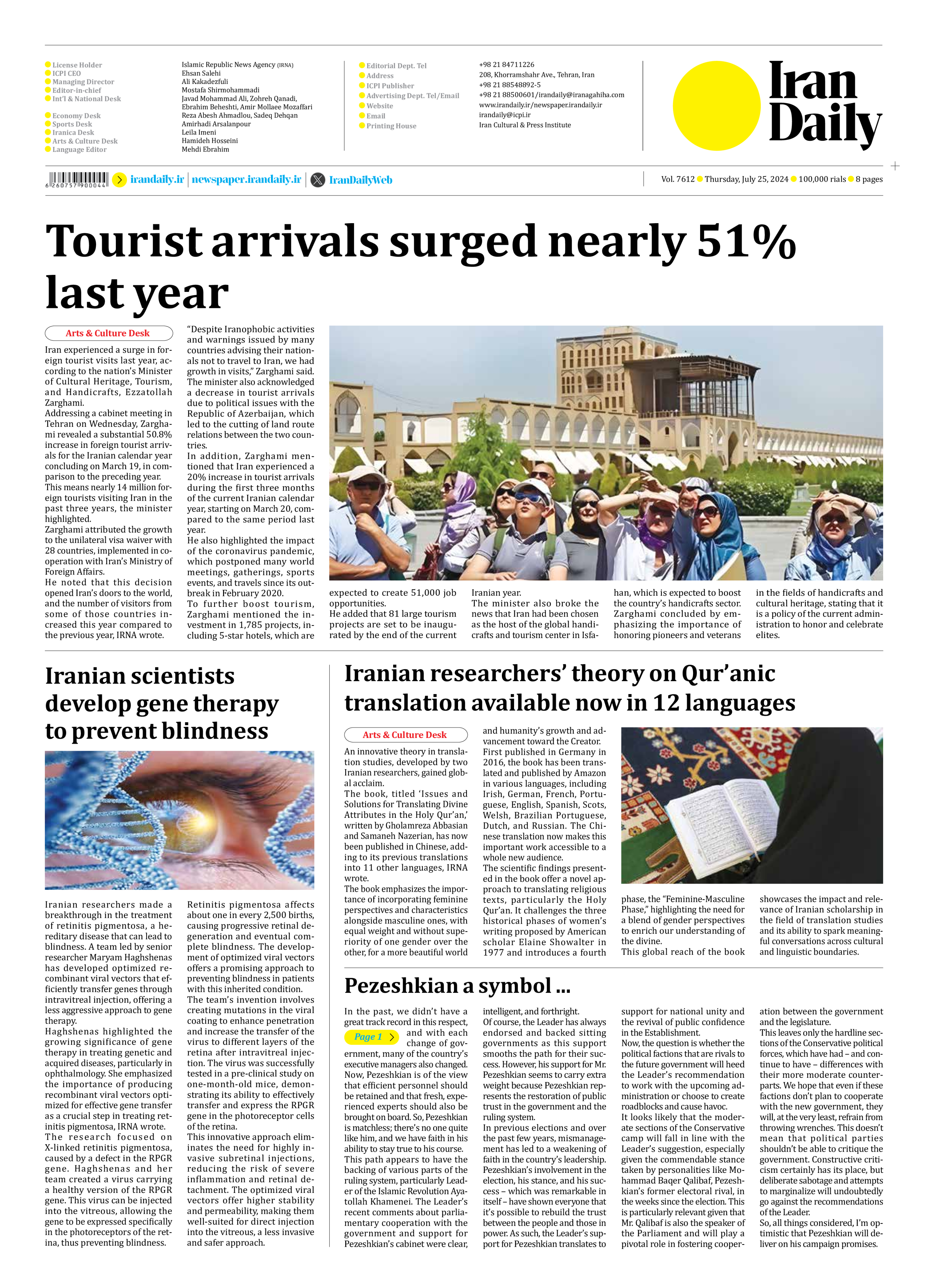
Copy in clipboard...
Tourist arrivals surged nearly 51% last year
Addressing a cabinet meeting in Tehran on Wednesday, Zarghami revealed a substantial 50.8% increase in foreign tourist arrivals for the Iranian calendar year concluding on March 19, in comparison to the preceding year.
This means nearly 14 million foreign tourists visiting Iran in the past three years, the minister highlighted.
Zarghami attributed the growth to the unilateral visa waiver with 28 countries, implemented in cooperation with Iran’s Ministry of Foreign Affairs.
He noted that this decision opened Iran’s doors to the world, and the number of visitors from some of those countries increased this year compared to the previous year, IRNA wrote.
“Despite Iranophobic activities and warnings issued by many countries advising their nationals not to travel to Iran, we had growth in visits,” Zarghami said.
The minister also acknowledged a decrease in tourist arrivals due to political issues with the Republic of Azerbaijan, which led to the cutting of land route relations between the two countries.
In addition, Zarghami mentioned that Iran experienced a 20% increase in tourist arrivals during the first three months of the current Iranian calendar year, starting on March 20, compared to the same period last year.
He also highlighted the impact of the coronavirus pandemic, which postponed many world meetings, gatherings, sports events, and travels since its outbreak in February 2020.
To further boost tourism, Zarghami mentioned the investment in 1,785 projects, including 5-star hotels, which are expected to create 51,000 job opportunities.
He added that 81 large tourism projects are set to be inaugurated by the end of the current Iranian year.
The minister also broke the news that Iran had been chosen as the host of the global handicrafts and tourism center in Isfahan, which is expected to boost the country’s handicrafts sector.
Zarghami concluded by emphasizing the importance of honoring pioneers and veterans in the fields of handicrafts and cultural heritage, stating that it is a policy of the current administration to honor and celebrate elites.







